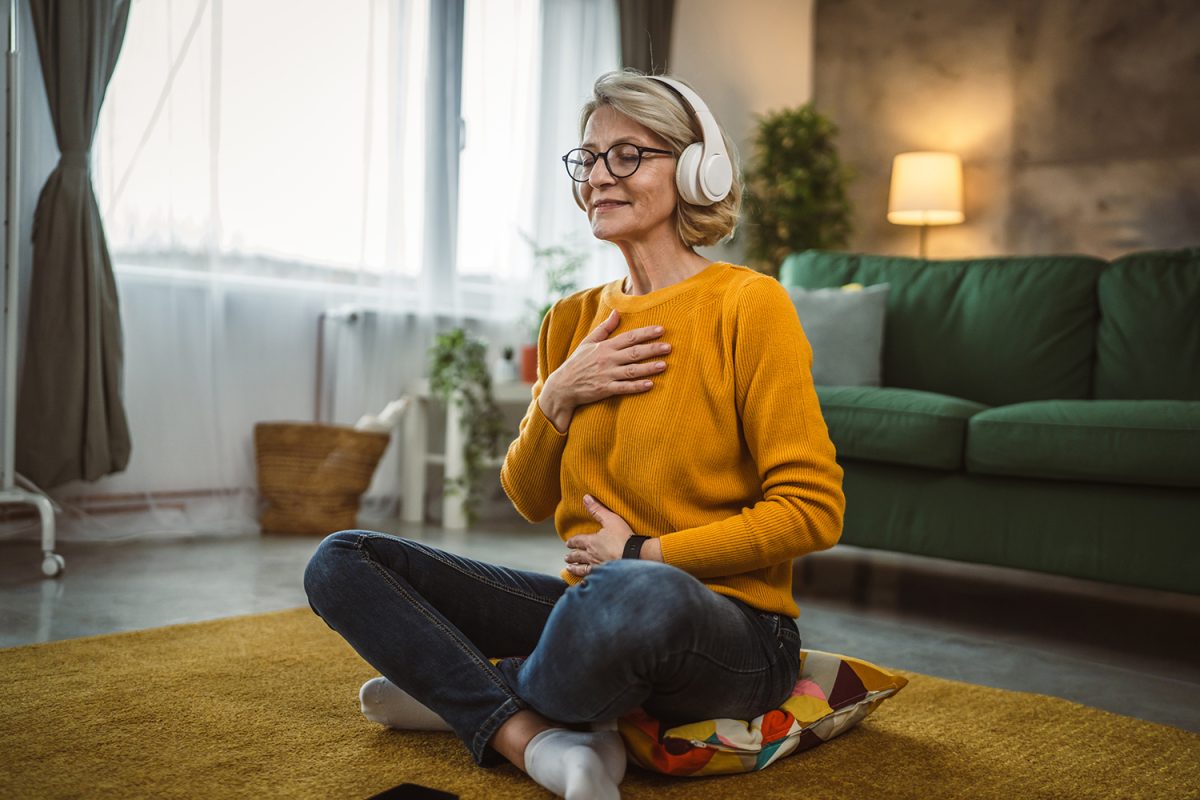“I started meditating for the cognitive benefits it provided in school, but the reason I stayed was for the spiritual fulfillment you feel in your everyday life.”
This is what Charlie Thrasher, the current president of Meditation Club, said made him so passionate about meditating.
In a time when Gen Z reports high levels of depression and isolation, turning to a more spiritual lifestyle may be what we need. Ranking highest among each generation in loneliness, it’s no secret Gen Z struggles with isolation.
According to provisional data from the Centers of Disease Control and Prevention, over 45,000 young people died by suicide in 2023. Current metrics pin suicide as the second leading cause of death for people ages 10 to 24 in 2021, reaching its peak in 2022 with over 49,000 deaths.
Well-being is closely tied to a sense of community. The National Library of Medicine even classifies social connectedness and belonging as crucial factors in human survival. While all forms of connection are important, physical, in-person relationships matter the most.
I’ve experienced this phenomenon in my own life. Although these feelings first appeared in high school, they fully manifested when I started college. The number 434 never held any significance to me until it represented how many miles away from home I was.
Sure, my family was always a phone call away, but it wasn’t the same. Then, one unassuming day in October last year, my grandma called and asked if I was still going to church. I gave her the same answer I always had — that I was trying to go but just hadn’t found time. She told me she thought it was a good idea. “God always has time for you,” she said.
When I chose to attend church again, I saw a significant increase in my motivation and overall positivity.
According to two studies, those who lead religious lives live 5.64 years longer and 9.45 years longer, respectively. Averaging the two numbers, people of faith live 7.54 years longer.
Why is this?
One article suggests that church members receive higher levels of positive support than others. The study identified three specific sources of support: the congregation, church leadership, and God. All three influences led to decreased feelings of depression and an overall increase in life satisfaction.
However, while religion may work for some, it may not work for everyone. Luckily, many of the benefits found through religion can also be achieved through a more spiritual lifestyle, not just a specific faith.
How can someone be spiritual without joining a specific religion? One way is through meditation, which has been linked to increases in clarity, motivation, and focus. My understanding is that meditation stills your body and focuses on one thing to bring a sense of calm and balance to your mind.
Charlie Thrasher started meditating during his senior year of high school and attributes much of his academic success to routine meditation before exams. He believes that if there’s one reason to start meditating, it’s for the cognitive benefits.
What exactly does meditation entail?
“If you stare at a wall for two minutes, you’re already halfway there,” Thrasher said. “Then start to breathe deeply and close your eyes for 10 minutes.”
At first, you may think this sounds boring or a waste of time, but you’d be surprised at how easy it is to fit something so productive into your schedule. Look at your daily screen time, come back, and make a case for why you can’t shave 10 minutes off of TikTok. If you can, all power to you, but come on, you have the time.
Many religions also incorporate meditation or similar practices. For Abrahamic religions, the process of prayer involves staying still and centering the mind on one thing.
Adoration, a form of worship in the Catholic Church, involves members of the congregation participating in deep prayer for several hours.
The National Library of Medicine cites these forms of meditation as a potential explanation for the increased level of psychological well-being.
During my time at the University of Iowa, I’ve attended one Meditation Club meeting. To this day, I still think back to that experience. I left the room feeling calm, centered, and filled with a sense of purpose that has stayed with me since.
After talking to Charlie, I’m convinced I should find the time to fit it back into my schedule.



